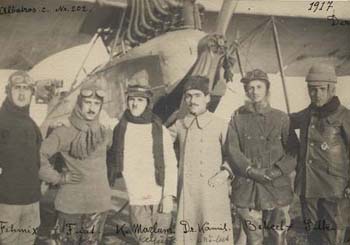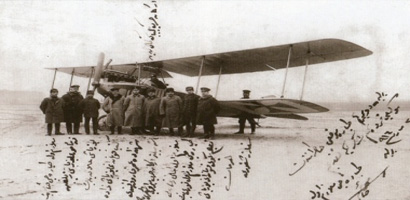No Doubt that Muslim Women in the UK Care about Syria - Question is How Should They Care?
- Published in Analysis
- |
The aftermath of the chemical massacre in Ghouta, Syria, committed by tyrant Bashar Al Assad, as he attempts to cling onto his throne was witnessed on the TV screens of all in the West.
However the concern for Syria has been in the hearts of minds of the Muslim community in the UK, long before this. Muslim women up and down the country, have read about the teeming refugee camps, the women raped in conditions that are too unbearable to mention and the destitution of families whose homes are being destroyed. And they have taken action.
There have been more events organised for Syria, in the UK than I could possibly count. Muslim women have mobilised to organise fun days, fundraising dinners, cake sales, art and canvas sales and so much more, to aid the growing humanitarian crisis of Syria. Ramadan was a month where Muslim TV channels were filled with appeals raising money for Syria and the Ummah gave generously. The convoys taking much needed aid and supplies to Syria, were supported and contributed to by a wide spectrum of Muslims. ICM poll this year, stated that Muslims were the group of highest charity givers in the UK.
Therefore the concern for Syria is without a doubt, present within Muslim women in the UK. However the question which we need to raise is what type of action should this concern lead to for us in the UK?
There are many facets to this discussion which are wider than one article. However the stark reality is, the Syrian crisis has not been the result of an earthquake, tsunami or even external aggression which the Syrian people had no hand in. The persecution and suffering that the Muslims in Syria undergo, has been due to the fact that they decided to go onto the streets calling for the removal of the regime, starting in Damascus, Deraa, Homs in early 2011. They have since then, consciously sacrificed their security, safety and all comforts of life for the sake of pursuing the struggle for political change. The lengthy efforts to film demonstrations, messages from battalions as well as the aftermath of destruction sent upon by Assad and his henchmen for the world to view and speak out on Youtube; Is rarely coined with a call just for the sending of humanitarian aid - Rather is about highlighting the struggle that they are pursuing and the protection that they need.
Therefore examining the nature of the Syrian crisis highlights something unique - That the worldly needs and comforts that we have been consumed in sending them, are what they willingly sacrificed in the first place to seek the path of Islamic political change. This does not mean as Muslim women in the UK we stop sending charity, as of course we need the reward of giving sadaqah to an Ummah in dire need. But it begs the question of what it is we should do for them.
Surely, if as Muhammad (saw) says as an Ummah we are like one body:
" الْمُسْلِمُونَ كَرَجُلٍ وَاحِدٍ إِنِ اشْتَكَى عَيْنُهُ اشْتَكَى كُلُّهُ وَإِنِ اشْتَكَى رَأْسُهُ اشْتَكَى كُلُّهُ "
"The Muslims are like one man, if his eyes complain then the whole of him complains, and if his head complains then the whole of him complains." (Muslim)
Then what pains them, pain us. What their aspirations are, should be our aspirations. So just like for a child who is aspiring to sit a very important exam, a mother will not only make sure the child is fed well and comfortable whilst they study - But also share in the hope and aspiration of passing the exam that the child has his hopes set on.
As Muslim women in the West, we must share in the aspirations of our Ummah who are sacrificing everything to struggle for the establishment of Islam in Syria. This therefore means we provide the refugees with food, clothing and supplies as best we can, but fundamentally support them in the struggle which will establish the security and protection of Islam for them in the long-run. As the Prophet (saw) said:
" إِنَّمَا الإِمَامُ جُنَّةٌ يُقَاتَلُ مِنْ وَرَائِهِ وَيُتَّقَى بِهِ "
"The Imam is a shield from behind which the Muslims fight and are protected." (Muslim)
Living in a place where we have the ability to air our views, have access to a wide-ranging community from different parts of the globe, to media, and the Internet and social media; we have a great potential to raise awareness about the struggle in Syria and highlight the silence on it, being about a struggle for Islam. Muslim women in the UK therefore have the ability to be a voice, for the silenced voice of our sisters in Syria, standing with them, supporting them and taking forth their struggle.
((وَإِنِ اسْتَنْصَرُوكُمْ فِي الدِّينِ فَعَلَيْكُمُ النَّصْرُ إِلَّا عَلَىٰ قَوْمٍ بَيْنَكُمْ وَبَيْنَهُمْ مِيثَاقٌ ۗ وَاللَّهُ بِمَا تَعْمَلُونَ بَصِيرٌ))
"And if they seek your help in the Deen, you must help them." [TMQ Al-Anfal: 72]
Umm Abdullah Khan
Women's Media Representative Hizb ut Tahrir Britain











.jpg)


